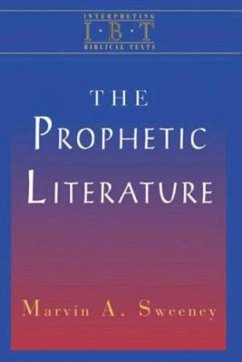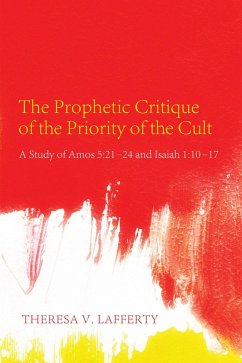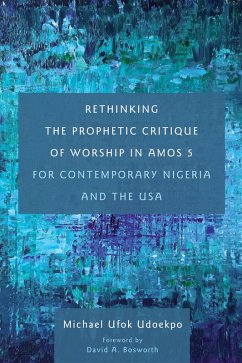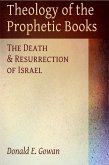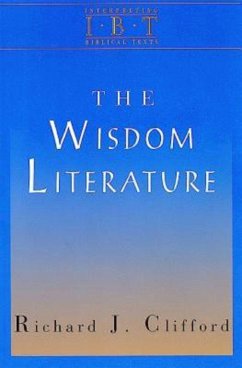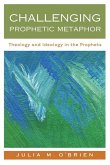Biblical Studies
Biblical texts create worlds of meaning, and invite readers to enter them. When readers enter such textual worlds, which are often strange and complex, they are confronted with theological claims. With this in mind, the purpose of the Interpreting Biblical Texts series is to help serious readers in their experience of reading and interpreting by providing guides for their journeys into textual worlds. The controlling perspective is expressed in the operative word of the title--interpreting. The primary focus of the series is not so much on the world behind the texts or out of which the texts have arisen as on the worlds created by the texts in their engagement with readers.
Although these books of the prophets are based upon the careers and experiences of some of the most talented and provocative individuals of their times, the books must be read first as literature. Each book displays its own unique organization, literary characteristics, and theological outlook in presenting the prophets. In the case of Jeremiah, interpreters must even consider two distinctive forms of the book in the Hebrew Bible and the Greek Septuagint. By guiding the reader through the literary structure and language of each of the prophetic books as well as the social roles of the individual prophets, this volume opens the reader to greater understanding and appreciation of the prophets of Israel and Judah.
"Fact packed and crystal clear, Marvin Sweeney's Interpreting Biblical Texts: The Prophetic Literature invites readers to tour the landscape of ancient Israel's Latter Prophets corpus. Sweeney serves as a first-rate guide, equipping readers with basic knowledge to grasp, and grapple with, the literary legacies of the canonical prophets. True to the series title, he interprets texts with an eye to major, dynamic themes in Jewish and Christian traditions. The volume proves a reliable guidebook for readers wishing not only to survey, but also to engage in dialogue with, ancient Israel's canonical prophets."
Katheryn Pfisterer Darr, Professor of Hebrew Bible, Boston University
"The aim of the series Interpreting Biblical Texts is pedagogical. This well-written, easy to follow, and coherent book serves its purpose well. More importantly, it certainly invites and guides its readers in the enterprise of interacting with the prophetic books in a way that is informed by recent, academic scholarship on this literature."
Ehud Ben Zvi, History and Classics & Interdisciplinary Program of Religious Studies, University of Alberta
"This is a new and interesting approach to the prophetic literature, which will be illuminating for theological reflection in our own post-Holocaust era."
John J. Collins, Holmes Professor of Old Testament, Yale
Marvin A. Sweeney is Professor of Hebrew Bible, Claremont School of Theology, and Professor of Religion at Claremont Graduate University.
Biblical texts create worlds of meaning, and invite readers to enter them. When readers enter such textual worlds, which are often strange and complex, they are confronted with theological claims. With this in mind, the purpose of the Interpreting Biblical Texts series is to help serious readers in their experience of reading and interpreting by providing guides for their journeys into textual worlds. The controlling perspective is expressed in the operative word of the title--interpreting. The primary focus of the series is not so much on the world behind the texts or out of which the texts have arisen as on the worlds created by the texts in their engagement with readers.
Although these books of the prophets are based upon the careers and experiences of some of the most talented and provocative individuals of their times, the books must be read first as literature. Each book displays its own unique organization, literary characteristics, and theological outlook in presenting the prophets. In the case of Jeremiah, interpreters must even consider two distinctive forms of the book in the Hebrew Bible and the Greek Septuagint. By guiding the reader through the literary structure and language of each of the prophetic books as well as the social roles of the individual prophets, this volume opens the reader to greater understanding and appreciation of the prophets of Israel and Judah.
"Fact packed and crystal clear, Marvin Sweeney's Interpreting Biblical Texts: The Prophetic Literature invites readers to tour the landscape of ancient Israel's Latter Prophets corpus. Sweeney serves as a first-rate guide, equipping readers with basic knowledge to grasp, and grapple with, the literary legacies of the canonical prophets. True to the series title, he interprets texts with an eye to major, dynamic themes in Jewish and Christian traditions. The volume proves a reliable guidebook for readers wishing not only to survey, but also to engage in dialogue with, ancient Israel's canonical prophets."
Katheryn Pfisterer Darr, Professor of Hebrew Bible, Boston University
"The aim of the series Interpreting Biblical Texts is pedagogical. This well-written, easy to follow, and coherent book serves its purpose well. More importantly, it certainly invites and guides its readers in the enterprise of interacting with the prophetic books in a way that is informed by recent, academic scholarship on this literature."
Ehud Ben Zvi, History and Classics & Interdisciplinary Program of Religious Studies, University of Alberta
"This is a new and interesting approach to the prophetic literature, which will be illuminating for theological reflection in our own post-Holocaust era."
John J. Collins, Holmes Professor of Old Testament, Yale
Marvin A. Sweeney is Professor of Hebrew Bible, Claremont School of Theology, and Professor of Religion at Claremont Graduate University.
Dieser Download kann aus rechtlichen Gründen nur mit Rechnungsadresse in A, D ausgeliefert werden.

